There hasn’t been a better time than now to start out in Final Fantasy XIV. The incredibly good MMO is, as of the time of writing, about to receive its major 5.3 update. Aside from finishing off the Shadowbringers expansion storyline, it also massively revamps the Free Trial system and streamlines the early content. And as of this update, the Free Trial is both extensive and generous.
Previously, the Free Trial was capped at level 35. This wasn’t bad for getting a taste of the game, but it didn’t really show off what makes FFXIV shine. The story, plot, dungeons, and world don’t really start getting unique and interesting until after that. Thankfully, this new update raises the level cap to 60, and includes the entirety of the first expansion—Heavensward—which really does show off some of the best the MMO has to offer. Also, flying mounts appear in the base areas once you finish the A Realm Reborn questline, which will make the subsequent quests much faster.
Of course, you can always skip the free trial and pick up the game immediately. This guide will help regardless. In it, we’re going to hopefully answer some of the more common questions, dispel some misconceptions, and generally give you a good starting point for your adventures in Eorzea. I’m not going to cover the absolute basics of movement, targeting, and the like, but you can find answers to most of those in the official Play Guide.
Free trial limitations
I suppose the first thing to address is what the limitations are for trial accounts. Thankfully, they’re more of an inconvenience than anything.
You can’t send Tells, nor can you use some of the more global chat commands like Shout or Yell. You can’t start a party, you can’t join a Free Company (a guild), and you can’t trade or use the Market Board.
There’s a chance that some of these will be changed in Final Fantasy XIV 5.3, as I’m writing this prior to it actually dropping, but most are likely to remain. But, again, they’re more inconveniences than genuine problems.
If invited then you can still join Linkshells, which are effectively in-game chatrooms, so you can still talk to friends with full accounts. You shouldn’t need to trade or use the Market Board. And while there’s a fair amount of required group content, such as dungeons, Final Fantasy XIV gives plenty of options for auto-joining parties to do these. And even on the overworld, you can still join parties—you just can’t make them.
The more you play, the more these restrictions will start to bite. You’ll want to get retainers, start parties, send Tells to friends, and join a Free Company. But it’s entirely possible to do all of the content in the Free Trial without ever using these systems. It’s just a bit less fun.
Character Creation
Does race matter?
Picking your race is the first decision you make when creating a character in Final Fantasy XIV, and selecting one will barrage you with stats. Here’s the good news: they’re entirely irrelevant.
Stats matter, but the difference in stats between the playable races makes zero practical difference at all. In the early game, things are simple enough that the stats won’t matter. In the late game, those extra two or three points are utterly overshadowed by the +450 you’re getting from a single piece of gear. Even other things like jump height are normalized between all races, so you don’t need to worry about your Lalafell not being able to hop up a small hillock.
So no. Pick whatever race you like, aesthetically. The same goes for your patron deity, incidentally. The patron deity gives elemental resistances, but for now, it’s just flavor.
Does class matter?
Yes and no. The good news is that, in Final Fantasy XIV, any single character can do everything in the game. One character can master every single combat job, while also being a master at gathering all materials and crafting everything. So unlike most other MMOs, you’re not nailed into your starting class. If you decide you don’t like it, you can change.
The ability to change classes unlocks around level 10, which shouldn’t take much time at all. Once you get the ability to travel to the other cities, you can pick up any other class you like (with the exception of the level-locked ones added in the expansions). That happens in the plot quests—referred to in-game as the MSQ, or Main Scenario Quests—around level 15.
The one difference it does make is to your starting city and the early quests. This is a matter of taste. Gridania is the forest-y land of Final Fantasy XIV‘s not-elves. Ul’dah is a desert jewel ruled by money. Finally, Limsa Lominsa is a seaside city founded by (mostly) reformed pirates. Any and all are fine.
Aside from the tone and setting of your early adventures, it also changes which Scion you meet and assist in the early game. Again, this is a matter of taste. Those starting in Gridania will be working with Yda and Papalymo, an odd-couple human brawler and a Lalafell mage. If you begin in Ul’dah you’ll find yourself working alongside Thancred, a roguish human. Finally, Limsa will have you encounter Y’shtola, a sharp-tongued catgirl conjurer.
Despite being the city with the most confusing layout, Limsa is my favorite choice, followed by Gridania. Partly this is because I hated Thancred prior to the first expansion, while Y’shtola is fantastic throughout. Partly it’s because I find desert environments a bit dull. And partly it’s because I really like cool pirates.
Thancred is awful.
Yes. Yes he is. Don’t worry, though; he gets better. Honestly, most of the cast does. There are a lot of changes to the writing and the voice cast between A Realm Reborn and Heavensward, which you can experience for yourself in the free trial.
What’s the difference between a class and a job?
This is mostly a silly semantic thing. Basically, a class is the “starting” thing. A job is what that class turns into at level 30 once it receives a job crystal. It’s pretty much just for the sake of lore and a feeling of advancement, and the two terms are generally interchangeable. Not many people will correct you if you state that your class is Dragoon.
Which class should I pick?
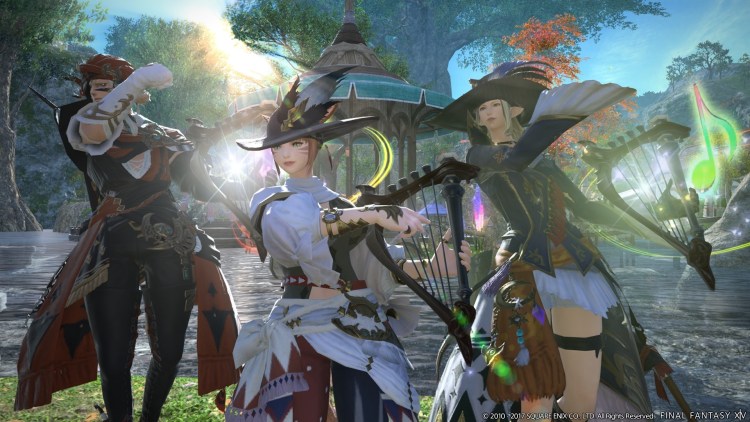
If it helps, Bards can play instruments. Actual instruments, I mean, to make music. Not just as a combat mechanic.
First, please bear in mind that you’re not locked into any class at all, and your starting class makes zero difference once you get a bit further in. It won’t affect the story at all. As such, don’t fret too hard about this: a few hours of play and you can switch with ease. If you’re wondering why none of them sound like traditional Final Fantasy classes, that’s because they eventually turn into those via job crystals.
For those looking to do a lot of group content, then for most content, a group constitutes one tank, two DPSes, and one healer. If it’s a Trial rather than a dungeon, double those numbers. That might influence what you want to spend your time with.
I’d recommend a DPS class for complete newcomers, if only because they have the least pressure on them in early group content, but you can work with anything—especially if you’re experienced with MMOs. Here’s the breakdown:
- Gladiator – Starting in Ul’dah, this tank class uses swords and shields and eventually evolves into Paladin.
- Marauder – Starting in Limsa Lominsa, this tank class uses a hefty greataxe and evolves into Warrior.
- Archer – Starting in Gridania, this ranged DPS class uses bows for physical damage and, unlike mages, isn’t locked in place while fighting. Archers eventually becomes Bards. They also get to play with instruments.
- Lancer – Starting in Gridania, this mobile melee DPS class uses spears and evolves into Dragoon. Particularly renowned for backflipping off edges in boss fights.
- Pugilist – Starting in Ul’dah, this melee DPS class uses rapid-fire flurries of punches and evolves into Monk.
- Thaumaturge – Starting in Ul’dah, this ranged DPS class uses black mage to obliterate foes, and eventually turns into Black Mage. Black Mages are great at standing in place at high levels and eating massively telegraphed boss attacks.
- Arcanist – Starting in Limsa Lominsa, this ranged DPS class uses summoned pets to tank, heal, and damage. This can evolve into both Summoner (a DPS job) and Scholar (a healing job).
- Conjurer – Starting in Gridania, Conjurers use white magic to heal allies and eventually turn into White Mages.
Note that regardless of what you pick, you’ll still be more than capable of slaying enemies. Even a Conjurer, a dedicated healing class, has plenty of attack spells. (In fact, in the end game, White Mage has one of the most devastating attacks in the game. It’s just an occasional thing that gets cycled in rather than a focus of the class.)
Wait, aren’t there more classes?
Yes, but you can’t choose them to start. Rogue is available at Limsa Lominsa as soon as you learn how to change classes. And as the new Free Trial includes Heavensward, that means everyone can swap to Astrologian, Machinist, and Dark Knight much later. However, unless you have Stormblood or Shadowbringers, I’m afraid that Samurai, Red Mage, Gunbreaker, and Dancer are off the table.
Here’s the rest of those available in the Free Trial:
- Rogue – Available from level 10. This DPS class dual-wields daggers and eventually turns into Ninja.
- Dark Knight – Available from level 50, after reaching Heavensward content. This tank class uses gigantic swords and the power of darkness to take hits and shield themselves and others. It’s also got arguably the best class quest in the game
- Astrologian – Available from level 50, after reaching Heavensward content. This healing class uses cards and the stars to buff allies and keep them healthy.
- Machinist – Available from level 50, after reaching Heavensward content. This ranged DPS class uses guns, flamethrowers, drills, and automatons to burn down foes.
There’s also a whole slew of gathering and crafting classes, but that’s something you can experiment with as you get more comfortable with the game.
Leveling, grinding, and dungeons
What’s the best way to level up?
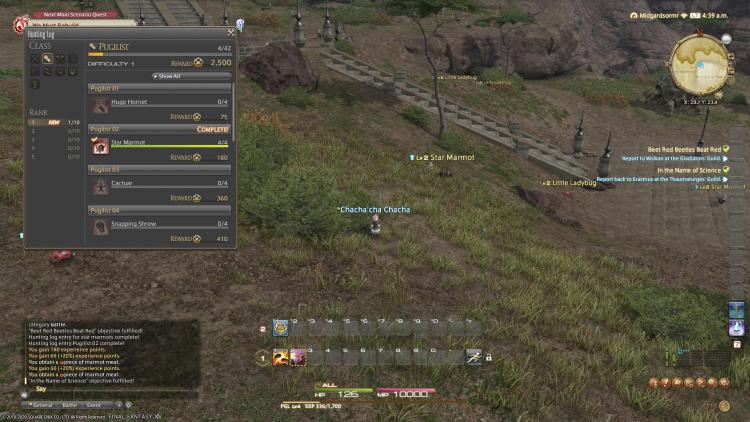
The Hunting Log is definitely worth doing along the way. And it’ll point you to areas around your level, too.
With your first class/job/clob in Final Fantasy XIV, the best way to level up it to simply do the MSQ—the main story stuff—and then take some nearby sidequests when the next one is above your level. You shouldn’t ever have to grind outside of doing sidequests, but there are plenty of interesting little sub-stories and activities to experience.
Things get trickier when you start trying to level extra jobs, because you won’t get the massive influx of experience from the MSQ any more. At first, sidequests are a pretty good means of getting experience, but you’ll run out of those too. Hurrah, then, for Guildleves, FATEs, and the Hunting Log.
Guildleves are repeatable quests with an adjustable level. You can do these as long as you have Levequest allowances, which you’ll get a few of every 12 hours. FATEs are denoted by big circles on your map, and are open-world group quests. Wandering into these gives you a specific objective, and everyone else in the area is working towards that same objective, with experience portioned out depending on your contributions. Finally, the Hunting Log is unique for each class and asks you to kill certain monsters, and can be opened by tapping H.
Final Fantasy XIV uses icons to signify and simplify quite a lot. That little target swirl above the hornets indicates that they’re currently required for the Hunting Log.
None of these are a “great” experience by themselves, but mixing all three of them with dungeon runs is a fairly good way of leveling once you’re out of sidequests for your level.
Do note that once you’re high enough level, the most experience tends to come from repeated dungeon runs in the Duty Finder. Healers and tanks should be able to get into dungeons almost instantly, but DPS queues are a lot longer. This can be mitigated somewhat by doing Command Missions with your Grand Company (taking NPC squad members into dungeons), but that’s something you won’t be able to do for a long while and is a little outside the scope of this guide. Either way, if you’re just trying to level an extra class as fast as you can, dungeons are generally the best way of doing it.
Do I need friends?
No. While Final Fantasy XIV has enforced group content, with plenty of dungeons and Trials (group fights against a single boss) required for progressing along the story, you don’t need a close-knit group to play with. Nor do you need to spam channels looking for people to play with.
When you unlock a dungeon, it appears in the Duty Finder. This is a tab that lets you queue up to do any piece of group content with others who have queued up on the same data center as you (which comprises multiple servers). You might have to wait 30 minutes for the dungeon to pop, but it’ll happen.
You also don’t have to worry about people not queueing for old content. At higher levels, the Duty Roulette is one of the best ways of getting experience and late-game rewards, and this can put people into pretty much any content. High-level players may grumble at having to do Copperbell Mines again, but it guarantees nobody is going to get stuck trying to finish an ancient dungeon so that they can proceed with the story.
That’s not to say it’s not good to have friends! It’s always nice to have other people to play with, whether in the form of a Free Company or just some buddies. But dungeons and Trials aside, a lot of the story forces you into solo play anyway, and the game offers plenty of ways to do the group content without pals.
Should I be wary of going into dungeons or Trials?
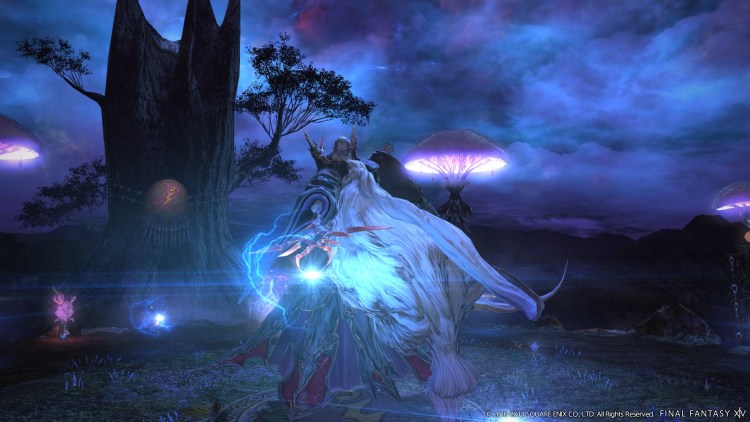
Don’t be worried about Trials early on. When it comes to this 75% beard, however, you may want to look up some details.
No. This may seem somewhat strange for an MMO, but the Final Fantasy XIV community is (for the most part) extremely friendly and helpful. Most of the early content is also simple as it’s designed to ease you into things, and so it can be done without much knowledge. This stuff is also required for story progression, so dungeons and trials are generally built so that anyone can do them, especially early on.
The best advice when you’re assigned a party via the Duty Finder is to say that you haven’t done this particular thing before. This’ll generally excuse you from any slip-ups you make, and if you’ve got a particularly helpful party, people will stop and explain at least one or two things about an upcoming boss before engaging it. Don’t expect that until later dungeons, though: for at least the first 30 levels, you can generally survive by just following the lead of the rest of the party and not standing in any giant damage markers.
That said, usual MMO dungeon rules apply. If Final Fantasy XIV is your first MMO, then don’t run ahead or away from the group. Let the tank attack the enemies to start encounters. If something starts attacking you, don’t run away from the tank; let them pull it away from you. Dungeons are group content, and you can’t take on enemies by yourself. But the early ones at least give a lot more leeway for this. I’ve managed to tank through a few of them as a Lancer when our own tank forgot to turn on the stance that focuses enemies on him.
Trials are much the same way, but they’re just a single fight against a boss. Again, the early ones are super simple to ease you in, so don’t let nerves get the better of you.
Novice Network and Mentors
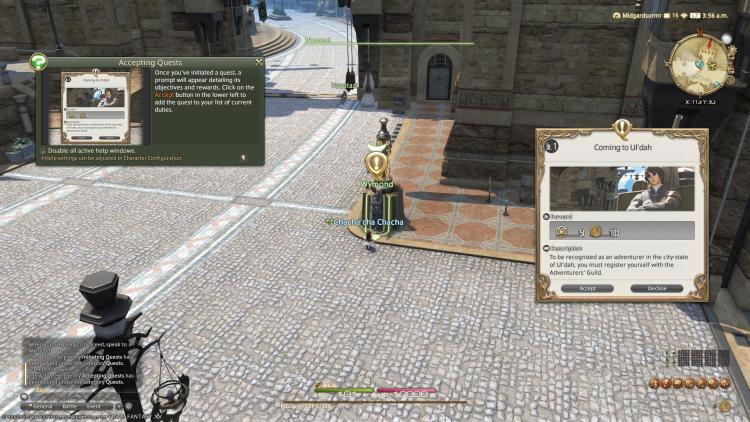
That little sprout next to the name signifies a new player. Also, the tutorials cover the actual basics of the game fairly well, so I’m not going into them here.
When you log in, you’ll probably notice a little green icon by your name. This is a sprout icon, indicating you’re new to Final Fantasy XIV. Aside from the indication to others that they shouldn’t expect you to be an expert, it comes with another perk: you can join the Novice Network.
The Novice Network is a specific chat channel for both new players and Mentors. Mentors are players who have done a huge amount of content, amassed plenty of commendations, and specifically signed up for the Mentor role to help out new and returning players. As such, it’s a place where newcomers are free to ask questions and have them answered. In theory, anyway. It often doesn’t quite work that way. Nevertheless, on a Free Trial you can’t join a Free Company, so there are worse ways to get help.
To join the Novice Network, you need to be invited by a Mentor, who are marked by a little crown instead of a sprout. If you’re not on a Free Trial, the simplest way to get an invite is to go into any of the major cities and /shout to ask for one. If you’re in the Free Trial, then you can’t shout. Instead, find a sizable cluster of players (around a city Aetheryte, perhaps) and use /say to ask for an invite. Just don’t feel disheartened if you get ignored: a lot of new accounts are spammers trying to sell currency, so it might take a little time to convince people you’re an actual player.
Mounts and chocobos
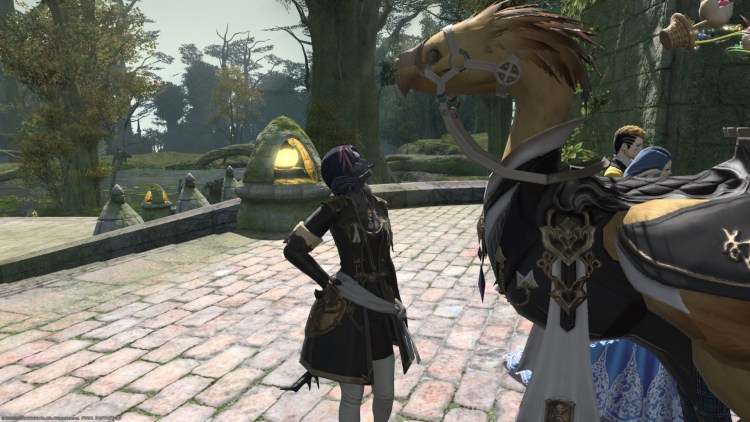
The downside of chocobos is that sometimes you’ll go to a wedding and discover you’re wearing the same thing as an overgrown chicken dinner.
It will probably take entire seconds in Final Fantasy XIV before you see players rocking around on huge and impressive-looking mounts. So how do you get one of your own?
Well, there are a variety of ways, but before anything else, you need to progress in the storyline until you join a Grand Company at level 20. After that, you can get the quest My Little Chocobo from your Grand Company. 200 Company Seals later (earned from Hunting Logs, FATEs, and the like) and you’ll have a mount license and a chocobo to ride around on.
You can actually call your chocobo into battle, too, but that’s a little later. This requires you to complete the quest My Feisty Little Chocobo, which is available at level 30 in the South Shroud. Your chocobo will actually level up in combat, and you can set skills to have it work well alongside you. It can tank, heal, or inflict damage; or all three, if you like.
You can even change its color by feeding it particular things, but that’s a mineshaft a bit too deep to go into here.
Final Fantasy XIV‘s Materia
Yes, materia is in Final Fantasy XIV, but it’s not the same as Final Fantasy VII‘s spell-giving stuff. This honestly isn’t something you need to worry about until the actual endgame content, which is way past the scope of this guide. However, considering you can get quests related to it relatively early, I’ll give a quick primer.
Certain bits of equipment have materia slots, and materia can be melded into these. This can be done by NPC vendors, or you can do it yourself if you have a crafter class of high enough level. Materia increases stats: Battledance materia, for instance, increases your Tenacity stat, which is a tank-unique stat.
To create materia, you need to complete the level 19 crafter quest Forging the Spirit in Central Thanalan. After that? Well, when you kill things, your Spiritbond for your equipped gear goes up. Once it hits 100%, you can right-click on that piece of gear and choose to turn it into materia. Note that lower-level gear results in lower-quality materia.
And yes, it’s possible to meld more materia onto gear than it has slots, but overmelding is another massive (and incredibly costly) late-game thing. Honestly, you can safely ignore materia until much, much later.
Changing appearance
One thing you may not want to ignore is your appearance, though, because everyone wants to look fancy. There are three ways of changing the way you look.
The first is Fantasia, and as this is a real-money item, it’s not available if you’re on a Free Trial account. This is a little potion that basically lets you redo the character creation again: you can change everything, from your race to your eyebrows.
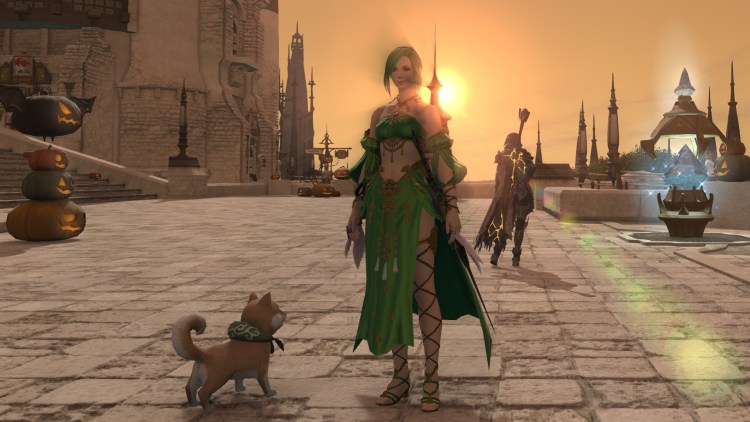
Or combine Glamours, dyeing, and character creation to turn yourself into Rydia from Final Fantasy IV.
The second is the Glamour system, which is Final Fantasy XIV‘s vanity system. This lets you change the appearance of one item into another. To unlock this, simply do the level 15 quest If I Had A Glamour in Western Thanalan, plus its follow-up. It’ll cost you glamour prisms, but Glamouring your gear is a pretty major part of Final Fantasy XIV, up to the point where there’s even a weekly minigame revolving around it.
The final method of character re-customization is the Aesthetician. Once again, you need to be level 15, and do the quest Beauty Is Only Scalp Deep in Limsa Lominsa. After that, you can use the bell in your private inn room to summon Jandelaine, who will be more than happy to change your hairstyle, general features, or tattoos. More hairstyles can be unlocked from the Gold Saucer, too. And speaking of that…
Other attractions

Technically, Hildibrand’s quests are quests, but they’re more like a ridiculous farce that you watch.
Maybe you’re done with questing and need a break. That’s fine; Final Fantasy XIV has a massive amount of extra content. You can try your hand at gathering and crafting, go fishing, or head into the minigame palace that is the Gold Saucer.
Yet again, we’re talking level 15 for this. You’ll need to have done the story quest The (Starting City Here) Envoy, which has you using airships to travel to the other city-states. After that, go to Ul’dah’s Steps of Nald and take the quest It Could Happen To You. This will lead you to the Gold Saucer.
Every 20 real-time minutes, a special minigame starts up in the Gold Saucer. But you’ve also got the Triple Triad collectible card game, the Cactpot lottery, Mahjong, a minion strategy game, chocobo racing, and a host of arcade machines, to name a few of the attractions. Success (and often failure) gives you MGP, which can be redeemed for a lot of very fashionable vanity items.
And that should be enough to get you started. If I think of more little tips and tidbits, I’ll be sure to include them. But for now, that should be sufficient to help you take your first steps in Eorzea. And I’ll say this again: stick with it. Final Fantasy XIV starts slow, but for my money it’s the single best MMO in the market right now.

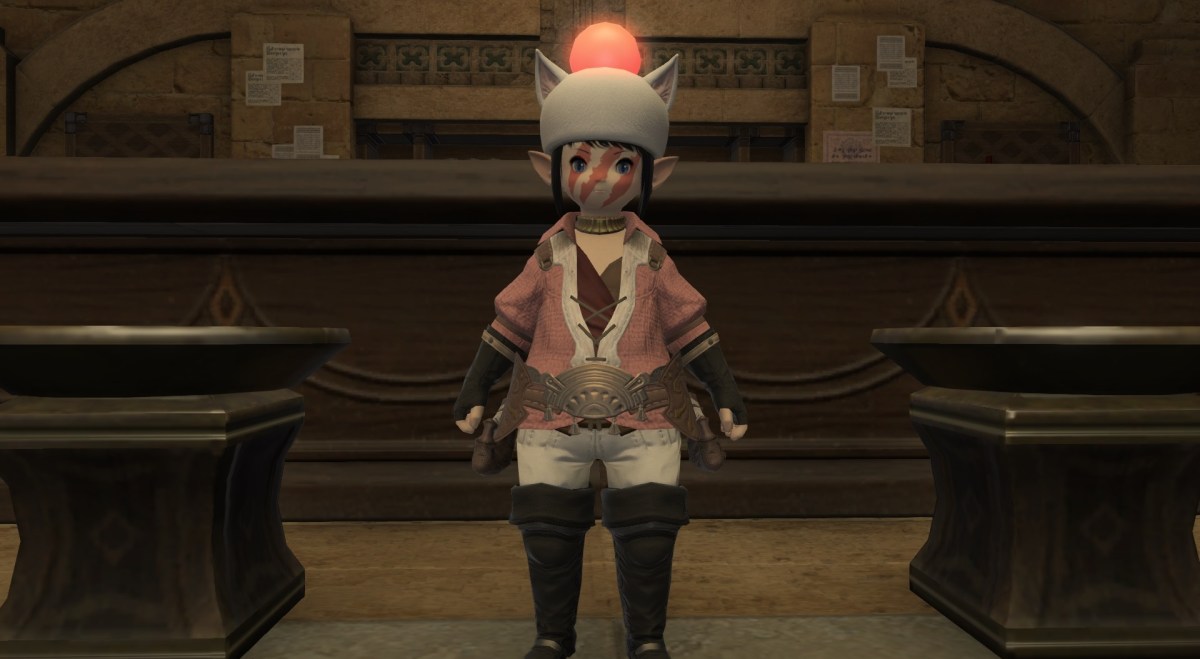




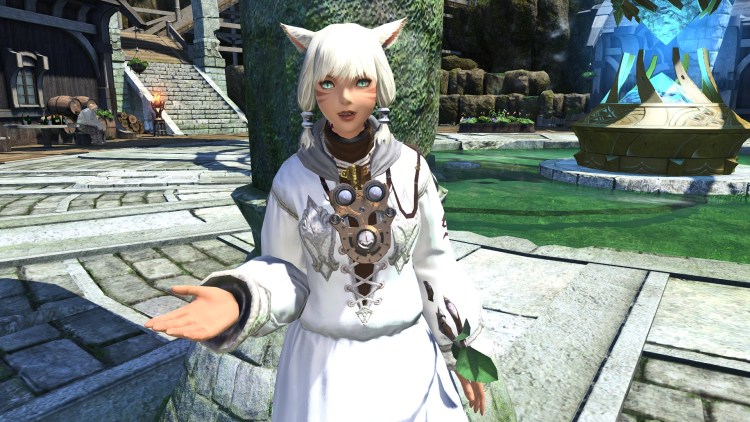
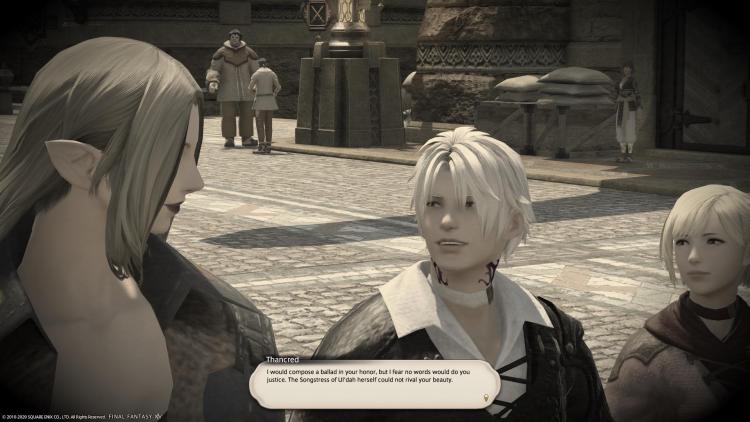
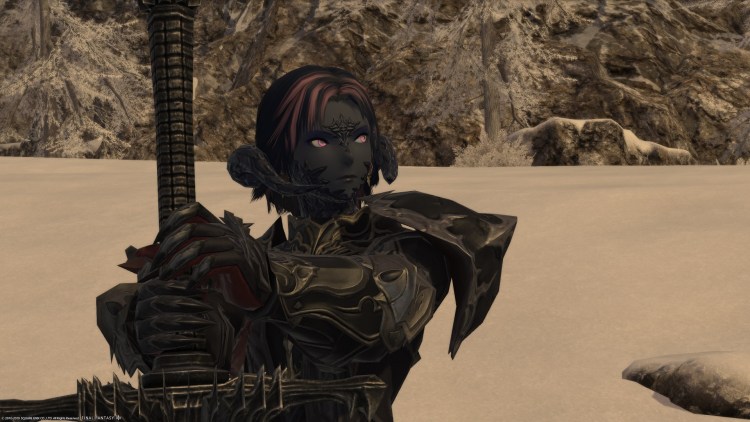

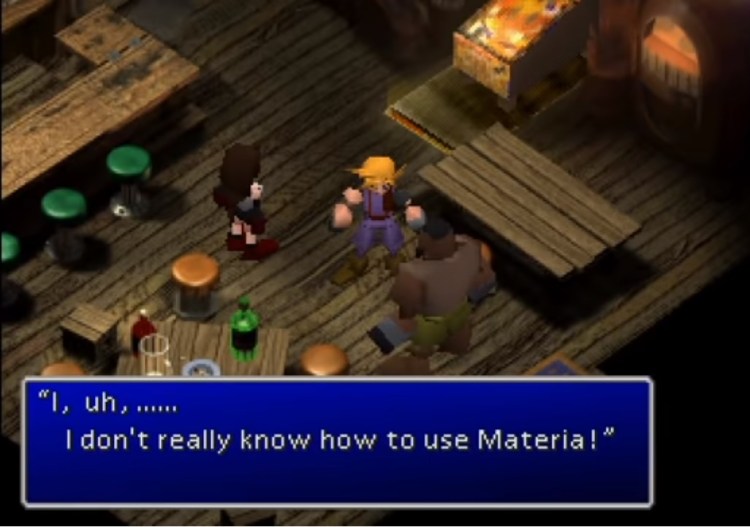

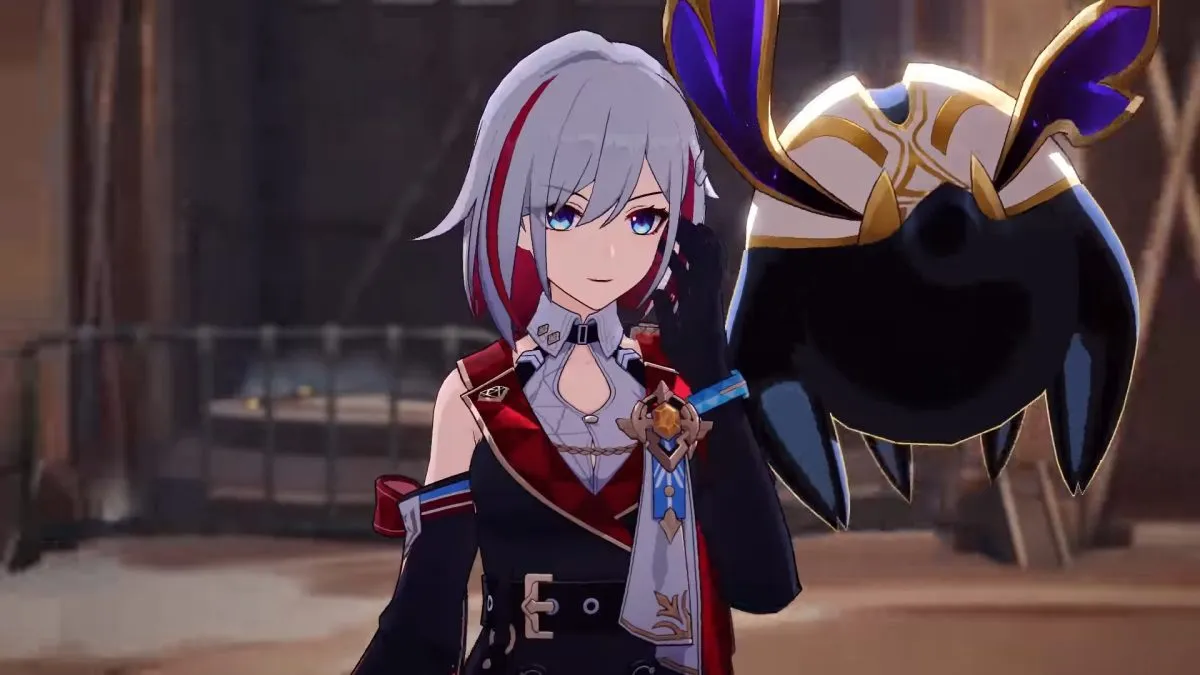

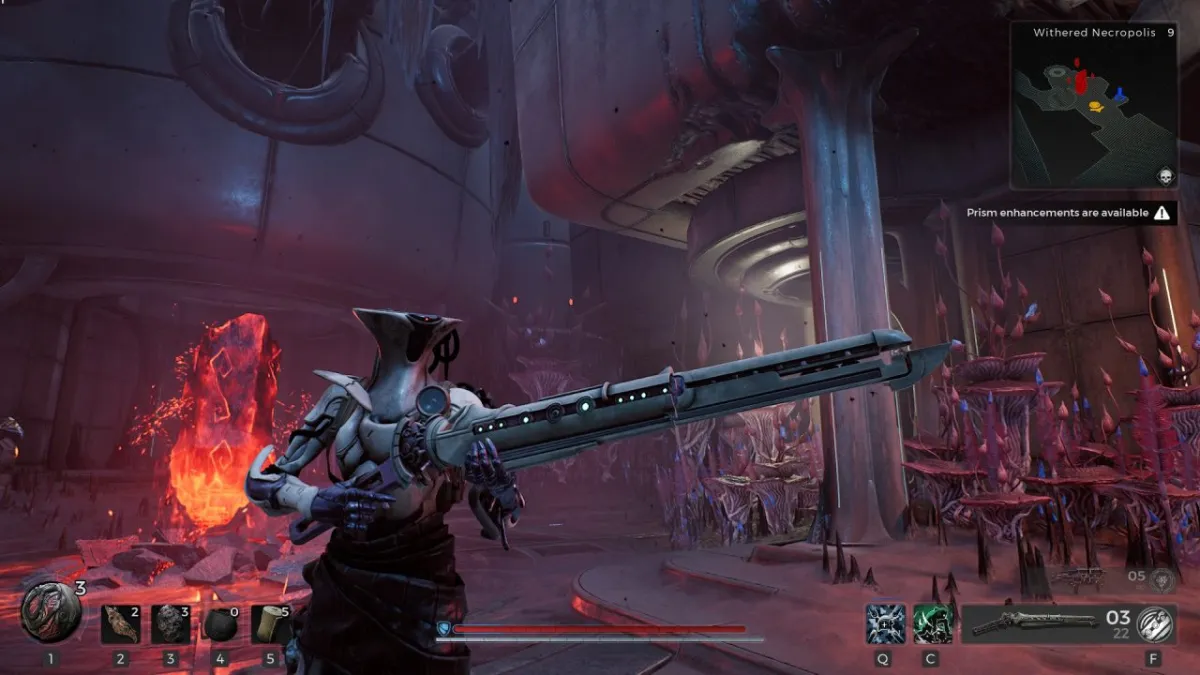

Published: Aug 11, 2020 08:00 am